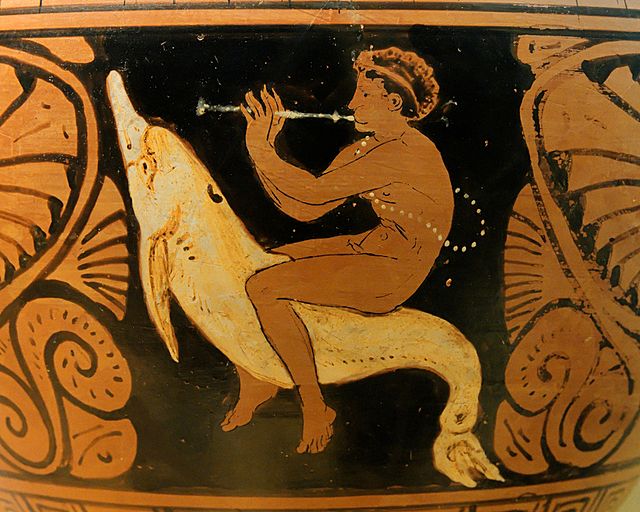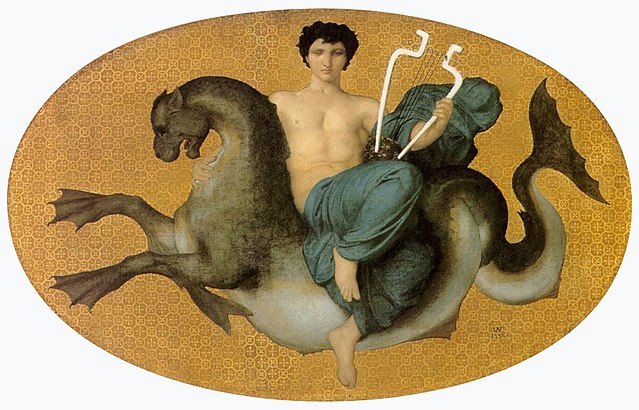Arion was a kitharode in ancient Greece, a Dionysiac poet credited with inventing the dithyramb. The islanders of Lesbos claimed him as their native son, but Arion found a patron in Periander, tyrant of Corinth. Although notable for his musical inventions, Arion is chiefly remembered for the fantastic myth of his kidnapping by pirates and miraculous rescue by dolphins, a folktale motif.
A musician riding a dolphin, on a Red-figure stamnos (360–340 BC) from Etruria. In this case the musician is an aulete rather than a kitharode, as he is playing the flute (aulos) rather than a kithara.
Arion riding a Dolphin, by Albrecht Dürer (c. 1514)
Arion on a Sea Horse, by William-Adolphe Bouguereau (1855)
Arion on the Dolphin, by François Boucher (1748) Princeton University Art Museum
The dithyramb was an ancient Greek hymn sung and danced in honor of Dionysus, the god of wine and fertility; the term was also used as an epithet of the god. Plato, in The Laws, while discussing various kinds of music mentions "the birth of Dionysos, called, I think, the dithyramb." Plato also remarks in the Republic that dithyrambs are the clearest example of poetry in which the poet is the only speaker.
Attic relief (4th century BCE) depicting an aulos player and his family standing before Dionysos and a female consort, with theatrical masks displayed above.





